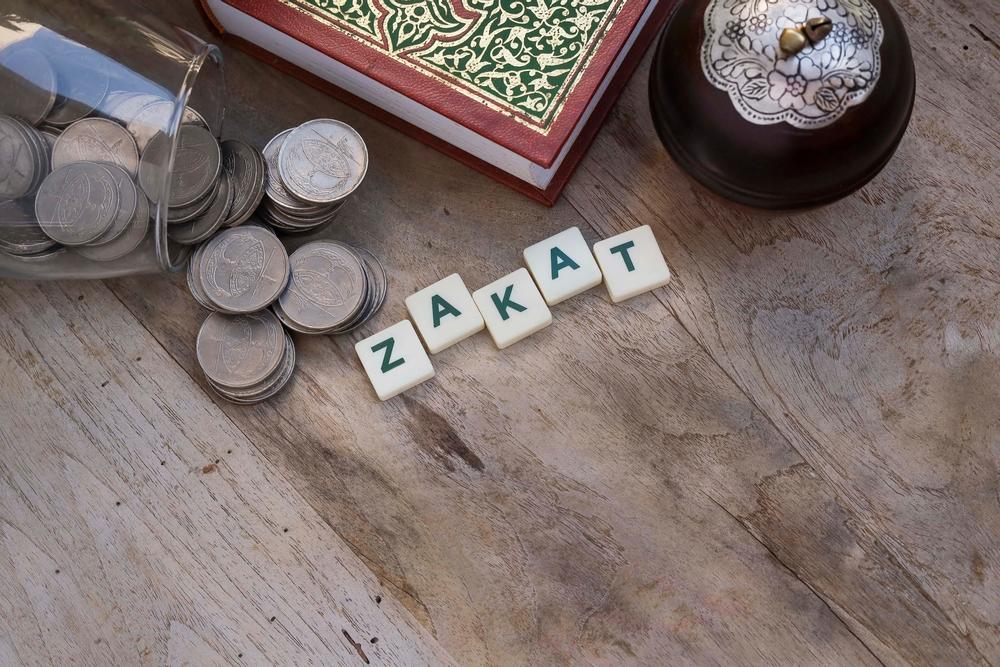
Zakat is one of the Five Pillars of Islam. Understanding what Zakat facts are is an important part of becoming a good Muslim.
Paying your Zakat is an annual obligation that must be done when your personal income exceeds the Nisab threshold. This can be done at any time during the year, and once you are in a regular cycle of Zakat payment, you will know automatically when your next Zakat payment is due.
If you are following the Islamic Calendar, then the amount you pay is 2.5 per cent of your wealth above the Nisab.
While it is not compulsory to pay your Zakat in the month of Ramadan, many Muslims choose to do so - this is because the Night of Power Laylat ul-Qadr) amplifies the paying of Zakat by a thousand nights.
In Islam, one of the most important Zakat facts is that the 2.5 per cent Zakat rate is an obligation for all Muslims whose personal individual income meets or exceeds the Nisab threshold.
This can be calculated based on the silver and gold weight values according to current market values.
To ascertain your own Zakat value, you can access our Zakat calculator here, which will automatically clarify your own Zakat obligation.
There is often confusion between the meanings of Zakat and Zakat al-Fitr. We hope that our Zakat facts article explains the difference for you.
Zakat is one of the Five Pillars of Islam. The other pillars include Shahadah (Declaration of faith), Salah (prayer), Sawm (fasting), and Hajj (Pilgrimage). Each pillar represents the five duties that every Muslim must carry out if they are to live a good life in the eyes of Islam.
To this end, the Zakat pillar facts refer to an obligation that must be carried out continuously as part of following Islam. Zakat may be referred to as a compulsory payment, but it is a value that must be adhered to and completed year in year out to fulfil that obligation, in the same way as fasting and praying.
Zakat al-Fitr is a donation linked specifically to Eid al-Fitr and is made at the end of Ramadan. It is a separate donation that is specifically aimed at those who are struggling and cannot afford to buy their own meat and food to celebrate Eid.
Zakat is paid by every individual Muslim whose personal income exceeds the Nisab threshold.
Yes. Because Zakat is one of the Five Pillars of Islam, it is one of the principal rules that must be followed for an individual to be considered to be living a good, responsible life. If Zakat is not adhered to, then it destabilises the rest of the pillars that uphold the faith.
By donating Zakat, your wealth can be purified, and you will be supporting many who are less able to help themselves.
If you think that you would rather not meet your Zakat obligations, then it would be wise to listen to the words of the Prophet (PBUH):
“And let not those who covetously withhold of that which God has bestowed on them of His Bounty (wealth) think that it is good for them. Nay, it will be worse for them. The things which they covetously withheld shall be tied to their necks like a collar on the Day of Resurrection. And to God belongs the heritage of the heavens and earth, and God is well acquainted with all that you do.” (Qu’ran 3:180).
It is expressly forbidden for Zakat to be used in the building of mosques. Beyond this, the funds generated by Zakat can only be used by those who do not have sufficient income to meet their own needs or are in a state of desperation and living in perpetual hunger.
The translation of Zakat from its original Arabic means ‘purification’, and the act of giving Zakat means that you are purifying your wealth by sharing it with others who are more in need.
We are taught to be grateful to Allah (SWT) for all he has given to us and to be mindful and compassionate to those who are facing hardship. Zakat is the principle through which Muslims can demonstrate this compassion.
Zakat rules dictate that you cannot give Zakat to your dependents, as you are responsible for their wellbeing. Equally, a wife is dependent on her husband, so the husband cannot give his wife, Zakat.
Neither are you allowed to give Zakat to your parents, as it falls within your remit to care for your parents as they grow old.
However, you can give Zakat to other family members, such as aunts, uncles, and cousins.
To work out your personal Zakat contribution, you can use our Zakat calculator.
Copyright © 2025 UKIM All Rights Reserved.
UK Registered Charity Since 1962
Charity Registration No. 250275


